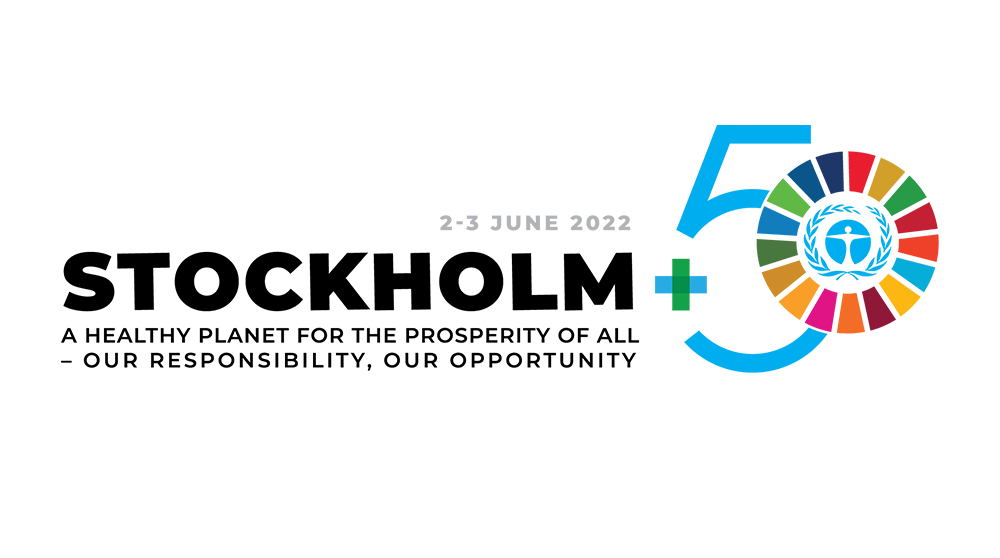Stockholm+ 50: opinions exchanged but with vague results
Date
July 8, 2022
A high-level meeting, taking place in Stockholm where Vi Agroforestry and We Effect have head offices, presented a good opportunity for our two organisations to interact. Vi Agroforestry and We Effect carried out a number of activities leading up to the Stockholm +50 meeting to make smallholder farmer’s voices and call to action heard. And during 2-3 June, staff members from Sweden and Kenya were on site in Stockholm, arranging side events and seminars. Insights and reflections afterwards are mixed. Did the meeting matter?
Pushing for farmers’ rights
This high-level UN meeting was arranged at a time when issues like climate change and biodiversity depletion are threatening our very existence – not least for rights-holders in the countries where Vi Agroforestry and We Effect are operating.
– We took the opportunity to push for stable development funding and increased support to climate adaptation for small holder farmers, says Anna Tibblin, Secretary General of Vi Agroforestry and We Effect.
No new vows from states
Despite the urgency of the hour, delegates from UN member states did not have a mandate to negotiate new commitments. Instead, Stockholm +50 aimed at yielding clear and concrete recommendations for how to speed up action on what states have already promised under existing initiatives and agreements (like the Paris Agreement).
– Still, we had hoped that Sweden would make better use of the conference. The commitment from the Swedish government was weak, which contributed to making the conference less relevant in terms of messages and media attention, says Anna Tibblin.
Recommendations do not mention gender
At the end of the meeting, the two co-organisers Sweden and Kenya presented ten recommendations, which have come to be known as the Stockholm Agenda. The agenda addresses the right to a healthy environment, but lacks a gender equality perspective. Sweden, despite having a feminist foreign policy, missed the opportunity to advance the rights of women and girls.
Civil society keen to engage
Leading up to the Stockholm +50 meeting in June, there have been a series of national and regional consultations and informal working groups around the world. Civil society participation has been said to be a priority for organisers. Yet it has been unclear to civil society actors how to engage meaningfully. There was a clear wish to know more about how the pre-events connected to the main meeting, and how the input given by civil society has been received and taken onboard. That would have helped prepare more useful input. Nevertheless, the UN meeting has created a momentum:
– Despite the unclear process, we made sure to use the occasion to dive deeper into how our partners are affected by climate change. Our partners in East Africa keenly shared their opinions and demands before and during Stockholm+50. It was also positive to see that the Stockholm +50 Global Youth Task Force policy paper, to which Vi Agroforestry provided input, received attention, says Eva Åberg, Director of Vi Agroforestry.
Opportunity to network
Another reflection on the bright side, is that the high-level meeting served as an opportunity to deep-dive into what the two organisations want to achieve. It was also a good platform for networking. For example, the occasion prompted Vi Agroforestry and We Effect to join hands with likeminded organisations and pin down our recommendations to policy- and decisionmakers.
Looking ahead
Vi Agroforestry and We Effect now turn towards CBD COP15 and UNFCCC COP27 – building on the work during Stockholm+50. Encouraged by the UN Secretary General António Guterrez’s words from his opening speech where he urged world leaders to shift to a circular world economy in order to stay within planetary boundaries.
Vi Agroforestry’s and We Effect’s activities related to Stockholm +50
- Active involvement in global working groups and national consultations
- Active involvement in CONCORD Sweden’s engagement of state officials in Sweden
- Co-arranging a side event on the Right to a Healthy Environment
- Co-arranging and speaking at an associated event at Sida on smallholder farmers’ action
- Delivering a statement in a leadership dialogue at Stockholm +50 itself
- Releasing the report Climate Justice
- Releasing the report Cause of Death: Farmer
- Publishing an op-ed on the need for more climate financing to people living in poverty
- Signing a CONCORD op-ed pushing Sweden to step up ambitions and action
- Undertaking a survey among young members of farmer organisations
- Giving input to a Sthlm+50 Youth Task Force global policy paper
- Releasing a policy brief on youth and agroforestry
- Arranging a digital trip to Guatemala for Swedish parliamentarians